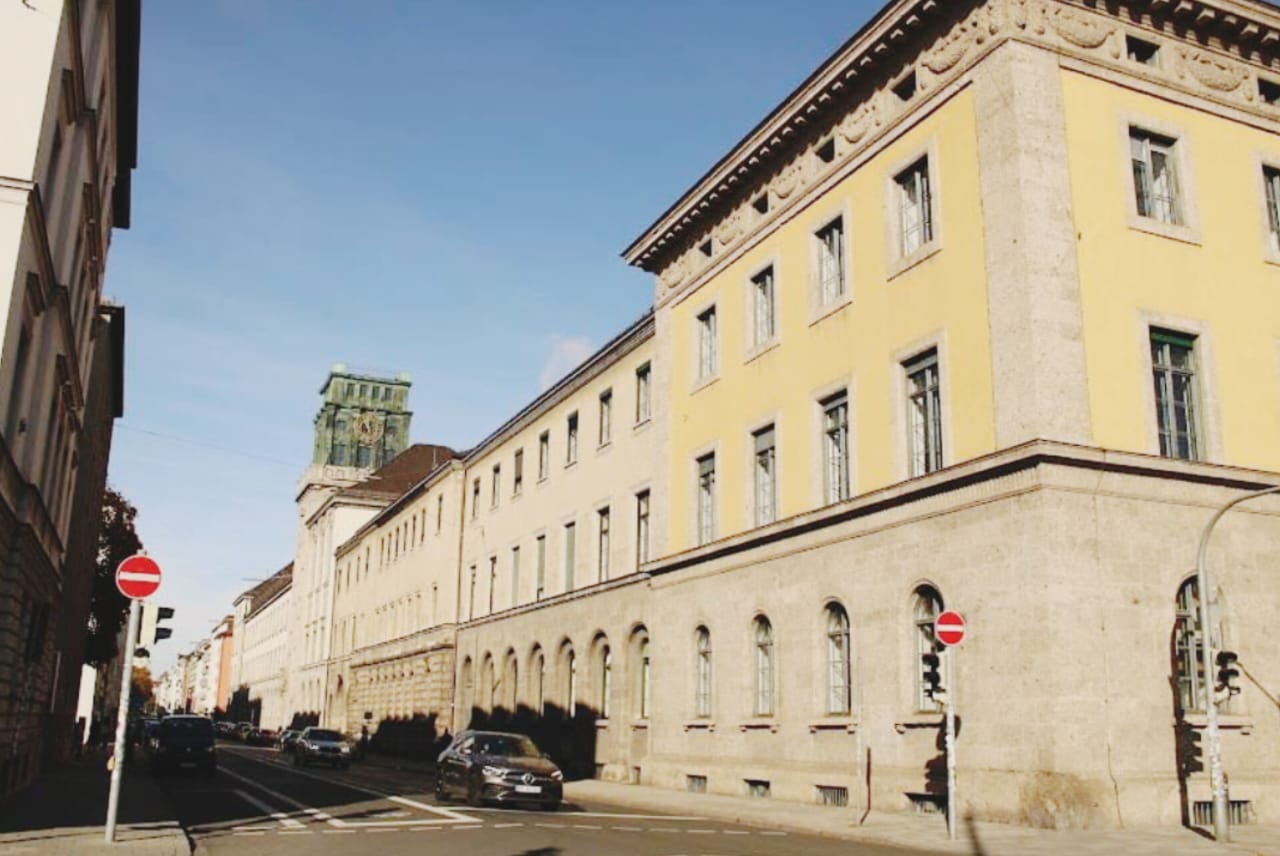Introduction
For international students studying in France offers a unique blend of rigorous education, affordable tuition, and scholarship opportunities. Known for its high-quality healthcare system and respected medical institutions, France is a top choice for aspiring doctors in the world. Scholarships are available to help students manage expenses, making it possible to pursue a medical degree without significant financial strain. This guide will walk you through everything you need to know about studying medicine with a scholarship in France, from the application process to post-graduation options.
Why Study Medicine with a Scholarship in France?
France is a prime destination for international students interested in a medical career due to its prestigious universities, cutting-edge healthcare system, and affordable education. Scholarships make studying medicine in France even more attractive, as they provide financial relief and often come with added benefits like access to networking opportunities and research grants.
Here are some compelling reasons to consider studying medicine in France with a scholarship;
- High-Quality Education: French medical schools are well-regarded worldwide and provide a thorough, hands-on education through a blend of academic coursework and clinical training. Studying in France prepares you to work anywhere in the world due to the rigorous standards upheld by French medical institution.
- Affordable Tuition and Living Costs: Compared to many other countries, the cost of education in France, especially at public universities, is relatively low. Scholarships and financial aid further reduce these costs, making it feasible for international students to pursue their medical degrees without incurring substantial debt.
- Scholarship Opportunities: France offers various scholarships specifically for international students. Programs like the Eiffel Excellence Scholarship, Fondation de France scholarships, and university-specific aid can significantly reduce the financial burden. Some scholarships cover tuition fees, while others include monthly stipends to help with living expenses.
- Pathway to Global Recognition: France’s medical education is recognized worldwide, and its graduates are highly sought after. This global recognition gives graduates a competitive advantage in the international job market, with the flexibility to practice in various countries.
- Cultural and Professional Growth: Studying in France offers an opportunity to experience French culture, language, and lifestyle Medical students benefit from exposure to a healthcare system renowned for its accessibility and patient-centered care, enhancing both personal and professional development.

Overview of the Medical Education System in France
The medical education system in France is structured into a highly organized pathway that balances academic learning with practical experience. It’s designed to produce competent and skilled doctors through a series of stages, each focusing on different aspects of medical training. This structure allows students to gradually build expertise and confidence as they progress through their studies.
The French medical education system is divided into three main stages:
- First Cycle (PCEM – Premier Cycle d’Études Médicales): This initial cycle, lasting two years, is an introduction to medical studies. The first year is particularly challenging, ending with a highly competitive exam known as the Concours de Première Année Commune aux Études de Santé (PACES). Only students who pass this exam can continue to the second year. Due to its difficulty, the first year has a high attrition rate.
- Second Cycle (DCEM – Deuxième Cycle d’Études Médicales): This cycle spans three years, focusing on fundamental medical knowledge and practical training. Students delve into subjects like pathology, clinical practices, and medical ethics, combining classroom learning with clinical rotations in hospitals. These rotations expose students to various medical specialties, helping them understand different branches of medicine and prepare for hands-on practice.
- Third Cycle (Internat): This final stage, known as the internat, is divided into two paths: General Medicine and Specialization. For General Medicine, this phase lasts three years, while specialization programs vary from three to five years, depending on the chosen field. During this cycle, students are fully immersed in clinical work, taking on responsibilities under the supervision of experienced physicians.
At the end of the third cycle, students take the National Ranking Exam (Épreuves Classantes Nationales, ECN). Their performance on this exam determines their specialty and the location of their residency, which is essential for gaining full licensure as a doctor.
Step 1
Pre-Medical Requirements
Before embarking on medical studies in France, it’s essential to meet the pre-medical requirements set by French universities. These prerequisites help ensure that students are well-prepared for the demanding medical curriculum and the competitive entry process.
Educational Prerequisites
To apply to a French medical school, students must have completed their secondary education and hold a high school diploma equivalent to the French Baccalauréat. International students should ensure that their diploma is recognized in France. Some universities may require students to complete preparatory courses or pass an equivalency exam if their diploma does not meet the French education standards.
For non-European Union (EU) students, additional evaluations or certifications may be required to demonstrate academic proficiency and readiness for medical studies in France.
Recommended High School Subjects
A strong foundation in science is crucial for success in medical school. While specific subject requirements can vary by university, students are generally advised to have a background in:
- Biology: Understanding biological systems and human anatomy is fundamental for medical studies. Chemistry: Chemistry, especially organic chemistry, is essential for understanding pharmacology and biochemical processes.
- Physics: Physics helps in understanding radiology, imaging techniques, and various physiological processes.
- Mathematics: Strong analytical skills and a good understanding of mathematics are valuable for problem-solving and data interpretation in medical studies.
Taking these subjects in high school will provide a solid base and make it easier to manage the challenging medical curriculum in France.
Entrance Exams Required
One of the most challenging aspects of entering a French medical school is passing the highly competitive entrance exam at the end of the first year, known as the PACES (Première Année Commune aux Études de Santé). The PACES exam determines whether students can continue in their medical studies. For international students, the entrance requirements and acceptance rates may vary, so it’s essential to check each university’s specific guidelines and policies.
Some universities may also offer alternative pathways for international students, especially through partnership programs or dual-degree options, which can bypass the rigorous PACES exam.

Step 2: Applying to Medical School in France
Applying to medical school in France as an international student requires careful preparation and attention to each university’s specific application procedures. French medical schools are highly selective, and understanding the application process will help maximize your chances of admission.
Application Process for International Students
The application process varies based on nationality and educational background:
- EU/EEA Students: Students from the European Union (EU) or European Economic Area (EEA) generally follow the same application process as French students, using the national Parcoursup platform. This platform manages applications for most French public universities, including medical schools. Non-EU Students: Non-EU students may need to apply through the Etudes en France online platform, managed by Campus France. This application portal is required for students from certain countries and helps simplify the application process by connecting applicants with the necessary visa and university admissions steps.
International students should research their target university’s specific requirements, as some institutions have individual application portals or additional steps, particularly for graduate programs.
Key Deadlines and Timelines
Application deadlines for French medical schools typically occur early in the academic year, around January to March. For those applying through Parcoursup, the platform generally opens applications in January, with final deadlines in April. Students using Etudes en France or Campus France platforms should verify the deadlines as they may differ slightly.
It’s advisable to begin preparing application documents and gathering necessary information at least six months before the deadline to ensure timely submission.
Documents Required for Admission
The documentation requirements may vary, but most universities will ask for the following:
- Academic Transcripts: High school transcripts and, if applicable, university records or any preparatory coursework completed.
- Diploma or Equivalent: Proof of secondary education equivalent to the French Baccalauréat.
- Language Proficiency Test Results: Many French medical programs require proficiency in French, so students may need to submit DELF or DALF certification scores. Some programs may also accept other certifications like TCF or TEF.
- Personal Statement or Motivation Letter: This letter should outline your reasons for wanting to study medicine in France, career goals, and why you are a suitable candidate.
- Letters of Recommendation: Some universities may request letters of recommendation from teachers, professors, or professionals who can vouch for your academic and personal qualities.
- Copy of Passport or ID: A copy of your passport or national ID card as proof of identity.
Step 3: Medical School Structure in France
French medical education follows a structured curriculum designed to provide both theoretical knowledge and practical skills, preparing students for a successful medical career. Each stage of medical school builds on the previous one, with a strong emphasis on hands-on training and patient care.
Overview of the Medical Curriculum

The medical curriculum in France is divided into three main cycles:
- First Cycle (PCEM): This initial cycle lasts two years and serves as an introduction to medical studies. The first year, known as PACES (Première Année Commune aux Études de Santé), is highly competitive, with a final exam that determines whether students can proceed. Those who pass this exam continue into the second year, focusing on foundational medical sciences such as anatomy, biochemistry, and physiology.
- Second Cycle (DCEM): This second phase spans three years, covering more advanced medical subjects like pathology, pharmacology, and clinical medicine. During this cycle, students also begin clinical rotations, where they gain hands-on experience working in hospitals under the supervision of medical professionals.
- Third Cycle (Internat): The final cycle, known as the internat, varies in length depending on the specialization chosen. General Medicine typically takes three years, while specializations may take up to five years. This cycle is heavily focused on clinical training, and students take on significant responsibilities within healthcare settings, progressively moving toward independent practice.
Clinical Rotations and Practical Training
Clinical rotations are an essential part of the French medical curriculum, beginning in the second cycle and continuing through the internat. These rotations allow students to apply their theoretical knowledge in real healthcare settings, under the guidance of experienced doctors and healthcare staff. Medical students rotate through various specialties, such as internal medicine, surgery, pediatrics, and emergency medicine,which helps them decide on a potential area of specialization.
Practical training also includes laboratory work, simulation exercises, and diagnostic skill development, preparing students for real-world challenges they’ll face as doctors..
Duration and Cost of Medical Education
The duration of medical education in France depends on the chosen specialty:
- General Medicine: Around 9 years in total (6 years of medical school plus a 3-year residency)
- Specialized Medicine: 10-12 years (6 years of medical school plus a 4-6 year residency, depending on the specialty)
Regarding costs, tuition fees for medical school in France are relatively low, especially at public universities. Annual fees range from €200 to €450 per year for EU/EEA students, while fees for non-EU students may be slightly higher but are still affordable. Scholarships and financial aid are available to help cover these costs, making it feasible for international students to complete their studies without incurring substantial debt.
Step 4: Exams, Licensing, and Certifications
In France, students must pass a series of exams and obtain specific certifications to become licensed medical practitioners. These exams and certifications ensure that graduates are fully qualified and prepared to practice medicine at high standards. Here’s an overview of the key exams and licensing requirements in the French medical system.
Required Licensing Exams in France
- PACES Exam (First-Year Exam): The first major exam medical students face is the PACES exam, taken at the end of the first year. This competitive exam determines whether students can continue in medical school. Due to the high level of difficulty, the exam often has a high failure rate, with only a limited number of students allowed to advance to the second year.
- National Ranking Exam (Épreuves Classantes Nationales – ECN): After completing the second cycle (DCEM), students must pass the ECN, which ranks students based on their performance. This exam is crucial because a student’s ranking determines both their specialty and the hospital or institution where they will complete their residency. The ECN is highly competitive, as students compete for positions in their desired specialties and preferred locations.
- DES Examination (Diplôme d’Études Spécialisées): After the internat (third cycle), students in specialized fields take the DES exam, which marks the completion of their specialty training. Passing this exam is essential to receiving a specialized medical diploma.

Certification Bodies and Exams After Graduation
Graduates must be registered with the Ordre des Médecins (French Medical Council) to practice medicine legally in France. This organization is responsible for overseeing the licensing of all medical professionals in the country. Once registered, graduates are given an official license to practice as physicians.
Additionally, some specialties may require further certifications or training, depending on the field. This varies widely by specialty, so students interested in subspecialties should check specific requirements in their area of interest.
Recognition of Foreign Medical Degrees
For international students or graduates from foreign medical programs, it’s essential to know that only diplomas issued by French medical schools are automatically recognized in France. For those holding foreign medical degrees, there may be additional exams or certifications required by the Ordre des Médecins to ensure that the medical standards align with French regulations.
Achieving these licensing exams and certifications is an essential step for medical graduates in France, ensuring that they meet the standards necessary to provide high-quality healthcare.
Step 5: Post-Graduation Pathways
After completing medical school in France, graduates have several pathways available, including internships, residency programs, and opportunities for specialization. Here’s a breakdown of what to expect in the post-graduation phase.
Internship and Residency Programs in France
The final stage of French medical training is the internat or residency, which lasts three years for General Medicine and between four to six years for specialized fields. During this period, medical graduates work full-time in hospitals, where they rotate through various departments, gaining hands-on experience under the supervision of senior physicians.
Residency programs offer extensive clinical exposure, allowing doctors to refine their skills, build expertise, and start taking on more responsibility in patient care. International students who complete their residency in France often benefit from structured training and are highly regarded in the international medical community.
Steps to Achieve Full Medical Licensure
After completing the residency, graduates must register with the Ordre des Médecins to receive their official medical license. This registration grants them the right to practice independently within France. Registration requires a completed residency, the DES (Diplôme d’Études Spécialisées) certification, and proof of training in an approved medical institution.
Graduates with foreign medical degrees who wish to practice in France may need to pass additional exams and undergo training that aligns with French medical standards. This process typically involves a review by the Ordre des Médecins and may require supplemental education or assessments.
Specialization and Further Training Options
France offers a variety of specialized training options for doctors who wish to focus on specific fields, such as cardiology, neurology, or pediatrics. For those interested in further specialization, subspecialty training programs, known as Fellowships or Diplôme d’Études Spécialisées Complémentaires (DESC), are available in many areas of medicine. These programs offer advanced training in highly specialized fields, usually taking an additional one to three years to complete.
Many French medical schools and hospitals are also involved in cutting-edge research, offering opportunities for graduates interested in academic medicine or research careers. Those who pursue a PhD can combine clinical work with research, contributing to advancements in their field.
Cost of Studying Medicine with Scholarship in France
Studying medicine in France offers a high-quality education at relatively affordable rates compared to other countries. With the added advantage of scholarships and financial aid, international students can pursue their medical education without facing options.overwhelming financial burdens. Below is a breakdown of tuition fees, cost of living, and available scholarship
Fees for Medical Schools in France
French public universities offer some of the lowest tuition fees in Europe, and this affordability extends to medical Tuition education. For EU/EEA students, tuition typically ranges from €200 to €450 per year. Non-EU students may have higher tuition fees, generally ranging between €2,770 and €3,770 per year, though exact costs can vary by institution and program.
Private universities may charge higher tuition, ranging from €5,000 to €20,000 annually. However, scholarships are available for both public and private universities, especially for students who demonstrate academic excellence or financial need.
Cost of Living, Scholarships, and Financial Aid Options
Living costs in France depend on the city, lifestyle, and housing preferences. Major cities like Paris are generally more expensive, with estimated monthly living expenses of around €1,200 to €1,500, while smaller cities may cost between €800 and €1,000 per month. Typical expenses include rent, food, transportation, and personal expenses.
To help offset these costs, a variety of scholarships are available:
- Eiffel Excellence Scholarship: Offered by the French Ministry of Foreign Affairs, this prestigious scholarship supports outstanding international students enrolled in master’s and doctoral programs in France, including medicine.
- It provides a monthly stipend, travel expenses, and health insurance.
- Charpak Scholarship: Specifically for Indian students, this scholarship from the French Embassy in India provides funding for living costs, tuition, and a monthly stipend.
- Campus France Scholarships: Campus France offers multiple scholarship programs for international students. Eligibility, funding amount, and application requirements vary, but these scholarships typically support tuition and living expenses.
- Regional Scholarships: Several French regions offer scholarships to attract international students. For example, the Ile-de-France Masters Scholarship and the Rhône-Alpes Scholarships provide financial support for students studying in those areas.
- University-Specific Scholarships: Many universities have their own scholarships for international students. These scholarships often consider academic merit, financial need, or both. Check with individual universities for available scholarships and requirements.
Visa Requirements for International Medical Students
International students planning to study medicine in France must navigate the visa application process to obtain the necessary documentation for their stay. Understanding the requirements and steps involved is essential for a smooth transition to studying abroad.
Student Visa Process for France
- Acceptance Letter: The first step in the visa application process is securing an acceptance letter from a recognized French medical school. This document is vital, as it proves that you have been accepted into an educational program in France.
- Determine Visa Type: Depending on the duration of your studies, you will need to apply for either a short-stay visa (less than 90 days) or a long-stay student visa (more than 90 days). Most international medical students will require a long-stay visa.
- Online Application: Applicants must fill out the visa application form online through the official French visa website or the nearest French consulate or embassy in their home country.
- Required Documents: To apply for a long-stay student visa, students typically need to submit the following documents:
- A valid passport (with a validity of at least three months beyond your planned departure from France).
- A completed visa application form.
- An acceptance letter from a French medical school.
- Proof of financial means to cover living expenses (bank statements, scholarship letters, etc.).
- Proof of accommodation in France (lease agreement or accommodation booking).
- Health insurance that covers medical expenses while in France.
- Additional documents may be required based on individual circumstances, such as proof of language proficiency.
- Visa Fee Payment: A visa processing fee must be paid during the application process.
- Visa Interview: In some cases, students may be required to attend an interview at the French consulate or embassy. This interview typically focuses on your study plans and intentions in France.
- Processing Time: Visa processing times can vary, so it is advisable to apply at least 2-3 months before the intended travel date to allow for any delays.
- Upon Arrival in France: After arriving in France, long-stay students must validate their visa within three months. This process involves registering with the French Office of Immigration and Integration (OFII) and may require a medical examination.
Work Permit and Post-Graduation Work Opportunities
While studying in France, international students can work part-time (up to 964 hours per year), which can help cover living expenses. However, students must ensure that their studies remain the primary focus and that their work does not interfere with academic responsibilities.
After graduation, international medical students wishing to stay in France to work must apply for a work permit. The specific type of work permit required depends on the job offer and qualifications. Graduates from French medical schools may find it easier to secure work permits due to their familiarity with the French healthcare system and language.

Career Prospects for Doctors in France
Upon completing their medical education and residency in France, graduates can expect a range of career opportunities in the healthcare sector. The demand for qualified medical professionals remains high, and there are various pathways to explore within the medical field. Here’s an overview of the job market, expected salarie, and employment opportunities for doctors in France.
Job Market for Medical Graduates
The healthcare system in France is well-established and continuously evolving, leading to a strong demand for qualified medical professionals across various specialties. Factors contributing to this demand include:
- Aging Population: As the population ages, there is a growing need for healthcare services, particularly in geriatrics and chronic disease management.
- Specialized Medical Fields: With advancements in medicine and technology, specialized fields such as cardiology, oncology, and pediatrics continue to expand,requiring more specialists.
- Public Health Initiatives: France invests heavily in public health, which creates opportunities in preventive medicine, public health education, and epidemiology.
International medical graduates who are fluent in French and have completed their training in France often find favorable job prospects, as they are familiar with the healthcare system and can effectively communicate with patients and colleagues.
Expected Salaries and Employment Opportunities
Salaries for doctors in France vary widely depending on the specialty, experience, and location. Here’s a general overview of what medical professionals can expect:
- General Practitioners (GPs): On average, GPs earn between €70,000 and €90,000 annually, depending on their experience and practice location.
- Specialists: Physicians in specialized fields typically earn more, with salaries ranging from €100,000 to €150,000 per year or higher, especially for in-demand specialties like surgery or cardiology.
- Hospital Employment: Doctors employed in public hospitals may earn slightly less than private practice doctors, but they often enjoy benefits such as job security and structured work hours.
Employment opportunities for doctors can be found in various settings, including:
- Public Hospitals: Doctors can work in public healthcare facilities, which are the backbone of the French healthcare system.
- Private Practices: Many doctors choose to open their private practices, providing flexibility and independence.
- Research and Academia: Graduates interested in research can find positions in universities, hospitals, or research institutions, often focusing on medical advancements and education.
Conclusion
Studying medicine in France offers international students a unique opportunity to receive a high-quality education in one of the world’s leading healthcare systems. With its combination of affordable tuition, a diverse range of scholarships, and a robust post-graduation job market, France is an attractive destination for aspiring medical professionals.
Key Takeaways for Aspiring Doctors
- Affordability: France provides one of the most cost-effective medical education options in Europe, with low tuition fees in public universities and various scholarship opportunities.
- Structured Pathway: The French medical education system is well-organized, guiding students through pre-medical requirements, medical school, residency, and licensing, ensuring a comprehensive education.
- Competitive Exams: Students must prepare for challenging exams such as the PACES and ECN, which are crucial for advancing through the medical program.
- Career Opportunities: Graduates can expect a healthy job market with a high demand for medical professionals, competitive salaries, and diverse career options in public health, private practice, and research.
- Visa and Work Regulations: International students must navigate the visa process and can benefit from part-time work opportunities during their studies, along with potential work permits after graduation.
- Cultural Experience: Studying in France allows students to immerse themselves in a rich cultural environment while developing proficiency in the French language, a valuable skill in the medical field.
In conclusion, for those passionate about pursuing a career in medicine, France stands out as a leading destination that combines academic excellence, financial feasibility, and promising career prospects. With the right preparation and understanding of the educational and visa processes, international students can successfully embark on their journey to become qualified medical professionals in this vibrant country.
- Campus France: Campus France – Official site for information on studying in France.
- Ordre des Médecins: Ordre des Médecins – French Medical Council for licensing information.
- French Embassy: French Embassy – Visa application guidelines and scholarships.
- Eiffel Excellence Scholarship: Eiffel Scholarship – Details on this prestigious scholarship for international students.

